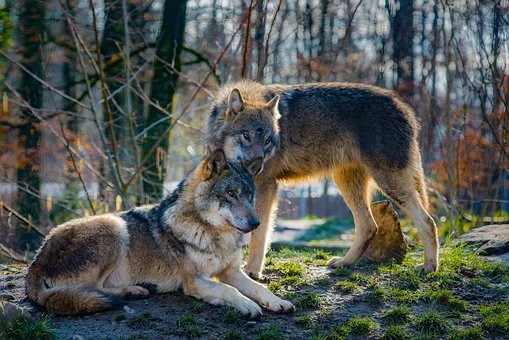Wolves have long been a fascinating and iconic animal in human culture, often portrayed in art, literature, and movies. One of the most enduring myths about wolves is that they howl at the moon. While this is a widespread belief, the reality is that wolves don’t howl at the moon specifically.
In this article, we will explore the science behind wolf howling behavior and examine the origin and persistence of this myth.
Do Wolves Howl at the Moon?
Wolves are highly social animals that use vocalizations as a means of communication. Howling is a key part of their vocal repertoire, and it serves several purposes. Wolves howl to communicate with other pack members, establish territory, and locate each other when they are separated.
Contrary to popular belief, the moon does not have a direct influence on wolf howling behavior. However, moonlight can make it easier for wolves to see each other and coordinate their howls.
Origin of the Myth
The myth of wolves howling at the moon has its roots in ancient folklore and mythology. In many cultures, the wolf was considered a sacred animal associated with the moon and the night. Over time, this association between wolves and the moon evolved into the belief that wolves howl at the moon.
This myth has been perpetuated in popular culture through books, movies, and other media, further cementing its place in the public consciousness.
The Science of Howling
Scientific studies have shed light on the true purpose of wolf howling. Howling serves as a form of long-distance communication that allows wolves to locate each other, signal their presence to other packs, and coordinate hunting and other activities.
Howling also plays a crucial role in reinforcing social bonds within a pack and maintaining pack cohesion.
Common Misconceptions
Despite the scientific evidence, the myth of wolves howling at the moon persists. This myth can be harmful to wolf conservation efforts, as it perpetuates negative stereotypes and misconceptions about these animals.
By understanding the true nature of wolf howling behavior, we can work to dispel these myths and promote a more accurate understanding of these fascinating animals.
Related: Male Wolf Names
Conclusion
The myth of wolves howling at the moon is just that: a myth. While wolves do howl, they do so for specific social and communicative reasons, not in response to the moon.
By learning more about wolf behavior and dispelling these common misconceptions, we can better understand and appreciate these amazing animals. It’s up to all of us to work towards wolf conservation efforts and protect these creatures for future generations.
